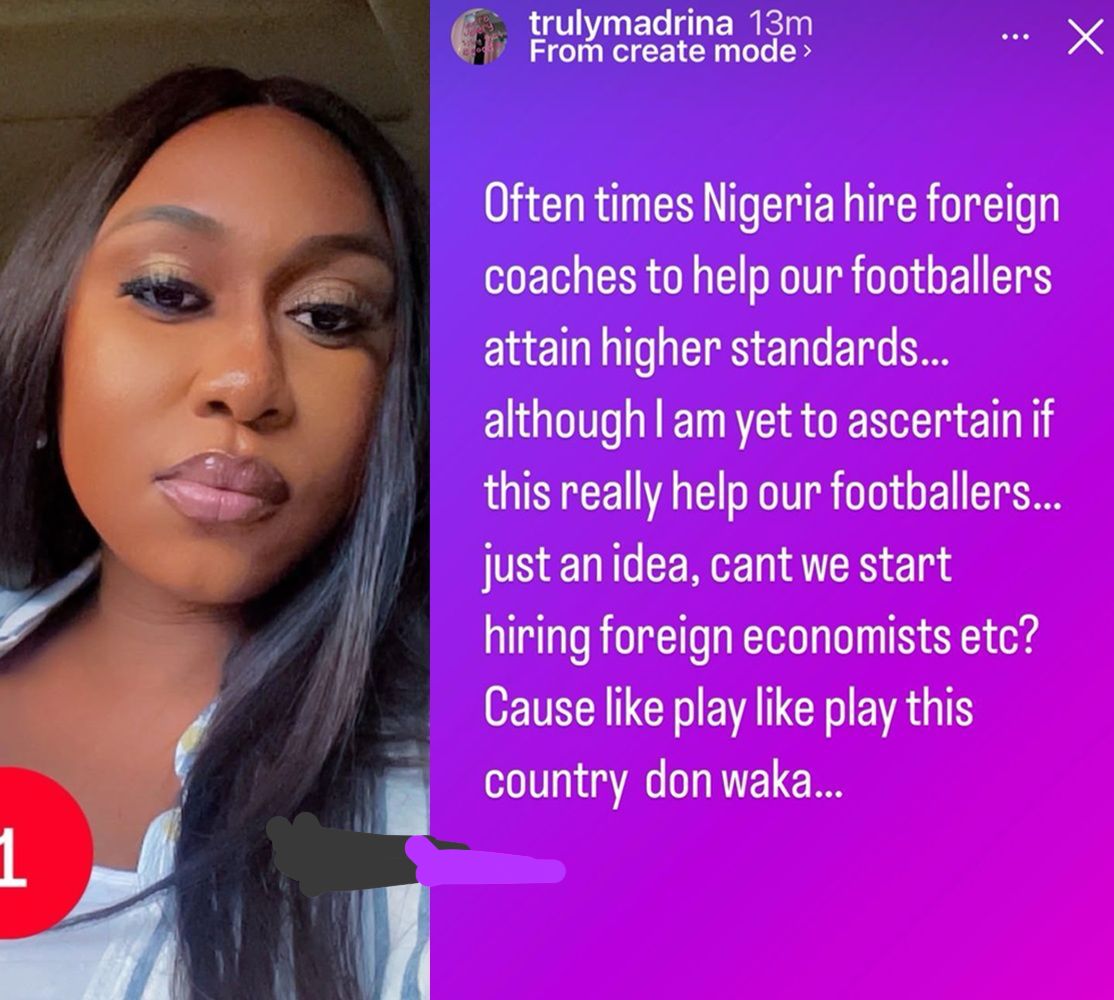
Singer Cynthia Morgan Proposes Unconventional Solution to Nigeria’s Economic Woes

Popular Nigerian singer Cynthia Morgan has sparked a heated debate on social media after suggesting that Nigeria should consider hiring foreign economists to manage its economy. The singer, known for her outspoken nature, took to her platform to share her thoughts on the country’s persistent economic struggles, drawing a comparison between the nation’s approach to football and its economic policies.
Morgan’s post read: \"Oftentimes Nigeria hires foreign coaches to help our footballers attain higher standards... although I am yet to ascertain if this really helps our footballers... Just an idea, can\'t we start hiring foreign economists etc? Cause like play like play this country don waka.\"
Her statement immediately gained traction, with many Nigerians weighing in on the unconventional suggestion. While some agreed that Nigeria’s economic situation requires urgent intervention, others questioned whether bringing in foreign experts would be a viable solution or merely another misplaced dependency on external assistance.
Nigeria’s economy has faced a turbulent period marked by rising inflation, a depreciating currency, and increasing hardship among its citizens. The country’s economic policies have been a subject of intense debate, with experts often pointing to issues such as mismanagement, corruption, and policy inconsistencies as key factors hindering progress. In recent years, various administrations have implemented economic reforms, but the nation continues to struggle with high unemployment rates, an unstable power sector, and a heavy reliance on oil revenue.
Morgan’s comparison to Nigeria’s football coaching strategy struck a chord with many. The Nigerian national team has historically hired foreign coaches in hopes of improving the team’s performance on the international stage. While some foreign coaches have had relative success, others have left without making a significant impact, raising questions about the effectiveness of this approach. The singer’s suggestion implies that, just as the country entrusts its sports development to external professionals, the same logic could be applied to its economic management.
However, the idea of hiring foreign economists to navigate Nigeria’s economy is not without controversy. Some argue that the nation has competent economists who, if given the right tools and an enabling environment, could turn things around. Critics of the proposal believe that the issue is not a lack of expertise but rather a lack of implementation of sound policies and a culture of accountability. They point to the fact that Nigeria has produced world-class economists, some of whom have held key positions in global financial institutions like the World Bank and the International Monetary Fund (IMF).
On the other hand, proponents of Morgan’s idea argue that foreign experts might bring in fresh perspectives, free from the political influences that often hinder economic progress in Nigeria. They cite examples of countries that have sought international assistance in various sectors and have seen significant improvements. For instance, Rwanda has worked with foreign advisors in areas such as governance and economic planning, contributing to its remarkable transformation in recent years.
Beyond the social media reactions, the discussion sparked by Morgan’s comments sheds light on the growing frustration among Nigerians regarding the country’s economic direction. The cost of living has skyrocketed, businesses are struggling, and many citizens are finding it increasingly difficult to make ends meet. The government’s efforts, including recent monetary policies and economic diversification strategies, have yet to yield the desired results, leading to skepticism about the country’s long-term prospects.
In response to the debate, some experts have emphasized the need for homegrown solutions tailored to Nigeria’s unique challenges. They argue that while international collaboration can be beneficial, relying solely on foreign economists could be a short-term fix rather than a sustainable solution. Instead, they suggest focusing on strengthening Nigeria’s institutions, fostering a business-friendly environment, and investing in education and technological advancement to build a resilient economy.
Despite the mixed reactions, Cynthia Morgan’s statement has undeniably ignited a crucial conversation about the direction of Nigeria’s economic policies. Whether or not her suggestion will be taken seriously by policymakers remains to be seen, but it has underscored the pressing need for innovative and effective solutions to Nigeria’s economic crisis. As citizens continue to seek answers, one thing is certain: the need for a more prosperous and stable Nigeria has never been more urgent.


